




Citric acid is a common ingredient used in household cleaning products due to its natural cleaning properties. It is often used to remove limescale and grime in various appliances, including washing machines. However, there has been some debate about whether citric acid can actually harm or cause damage to these machines.
On one hand, citric acid is considered to be a safe and effective cleaner for washing machines. It can help remove built-up limescale and mineral deposits, which can improve the performance and lifespan of the machine. Moreover, citric acid is a natural and environmentally friendly alternative to harsh chemical cleaners.
However, it is important to note that citric acid is an acid, and like any other acid, it can potentially cause damage if used improperly. Some washing machine manufacturers may recommend against using citric acid or other acid-based cleaners, as they can corrode certain parts of the machine, such as rubber seals or plastic components. It is crucial to consult the manufacturer’s guidelines and recommendations before using citric acid as a cleaner for your washing machine.
Citric Acid and Washing Machines: A Closer Look
When it comes to laundering clothes, we often rely on various detergent products to get the job done effectively. However, some people have been exploring alternative methods, such as using citric acid to clean their washing machines. In this article, we will take a closer look at citric acid and its potential effects on washing machines.
What is Citric Acid?
Citric acid is a natural acid found in citrus fruits, such as oranges, lemons, and limes. It is commonly used in food and beverages as a flavor enhancer and preservative. Additionally, citric acid has some cleaning properties, making it an attractive option for those looking for eco-friendly cleaning alternatives.
Can Citric Acid Harm Washing Machines?
While citric acid can be effective at removing lime scale and other build-ups from washing machines, it should be used with caution. Washing machines are designed to handle specific types of chemical compounds found in traditional laundry detergents. Using citric acid in excessive amounts or improperly could potentially lead to damage.
How to Safely Use Citric Acid in Washing Machines
If you decide to use citric acid to clean your washing machine, here are some guidelines to follow:
- Start with a small amount: Begin by using a small amount of citric acid, around 1/4 to 1/2 cup, depending on the size of your washing machine.
- Pre-dissolve the citric acid: Dissolve the citric acid in warm water before adding it to the washing machine. This will help prevent any undissolved granules from clogging the machine or leaving residue on your clothes.
- Choose a suitable cycle: Use a regular cycle with hot water to allow the citric acid to work its magic.
- Run an additional rinse cycle: After the cleaning cycle, run an extra rinse cycle to ensure that all citric acid residue is completely removed from the machine.
Alternatives to Citric Acid

If you are concerned about using citric acid or prefer alternative cleaning methods, there are other options available:
- Vinegar: White vinegar can be used as a natural cleaner for your washing machine. Similar to citric acid, it helps remove build-up and odors. Follow the same guidelines as mentioned above for citric acid.
- Baking soda: Baking soda is another gentle cleaner that can be used for washing machine maintenance. Add about 1/4 to 1/2 cup of baking soda to a regular cycle and run it without any laundry.
Conclusion
In conclusion, citric acid can be used to clean washing machines effectively, but it should be used with caution. Always follow the recommended guidelines and use the appropriate amount to avoid any potential damage. If you are unsure about using citric acid, there are alternative natural cleaning methods like vinegar and baking soda that can be equally effective.
Does Citric Acid Harm Your Washing Machine?
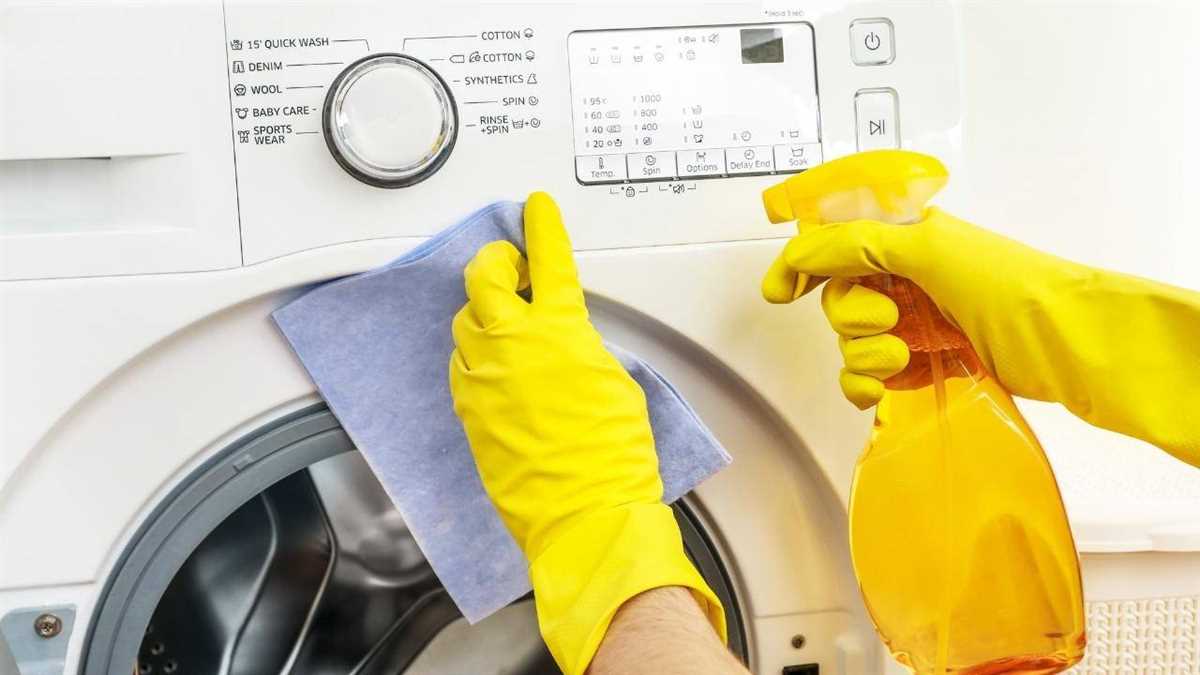
Many people use citric acid as a natural cleaning agent, and it can be very effective for removing stains and buildup from various surfaces. However, when it comes to using citric acid in your washing machine, there are a few things to consider.
The Benefits of Using Citric Acid
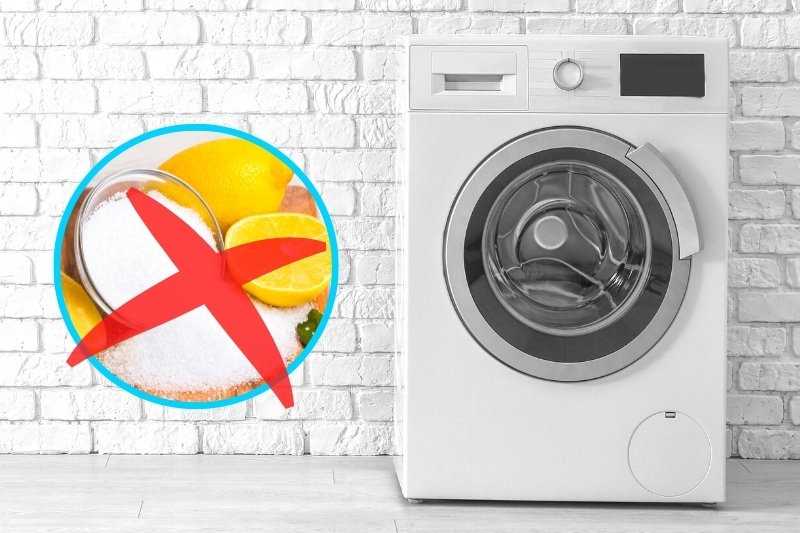
- Citric acid is a natural alternative to harsh chemical cleaners.
- It can help remove mineral deposits and buildup from the washing machine.
- It can help eliminate odors and keep your machine smelling fresh.
Potential Risks and Precautions
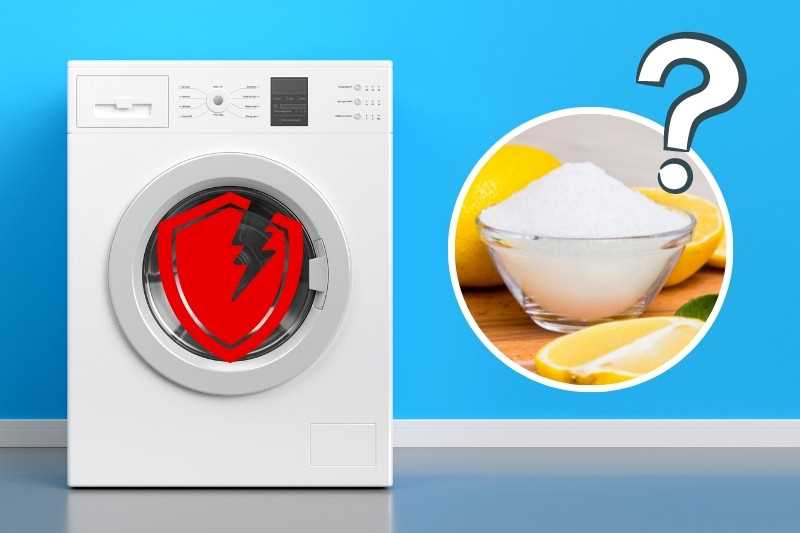
While citric acid can be useful for cleaning your washing machine, there are some potential risks to be aware of:
- Damage to Rubber Seals: Citric acid is acidic, which means it can cause some rubber seals and gaskets to deteriorate over time. This can lead to leaks or other issues with your machine.
- Staining: Citric acid can discolor certain materials, so it’s important to avoid getting it on any visible surfaces of your washing machine.
- Overuse: Using citric acid too frequently or in high concentrations can potentially damage the internal components of your washing machine.
Tips for Using Citric Acid Safely
If you decide to use citric acid in your washing machine, here are some tips to minimize the risks:
- Dilute the Citric Acid: Mix a small amount of citric acid with water to create a solution that is not too concentrated.
- Targeted Cleaning: Use the citric acid solution only on specific parts of your washing machine that need cleaning, such as the detergent dispenser or drum.
- Rinse Properly: After using citric acid, make sure to thoroughly rinse the areas with water to remove any residue.
- Moderation: Avoid using citric acid too frequently. Using it once every few months should be sufficient for regular maintenance.
Conclusion
While citric acid can be an effective cleaner for your washing machine, it’s important to use it with caution. Be mindful of the potential risks and always follow the manufacturer’s recommendations for cleaning and maintenance. If you’re uncertain about using citric acid, it’s best to consult with a professional or seek alternative cleaning methods.
Potential Damage Caused by Citric Acid
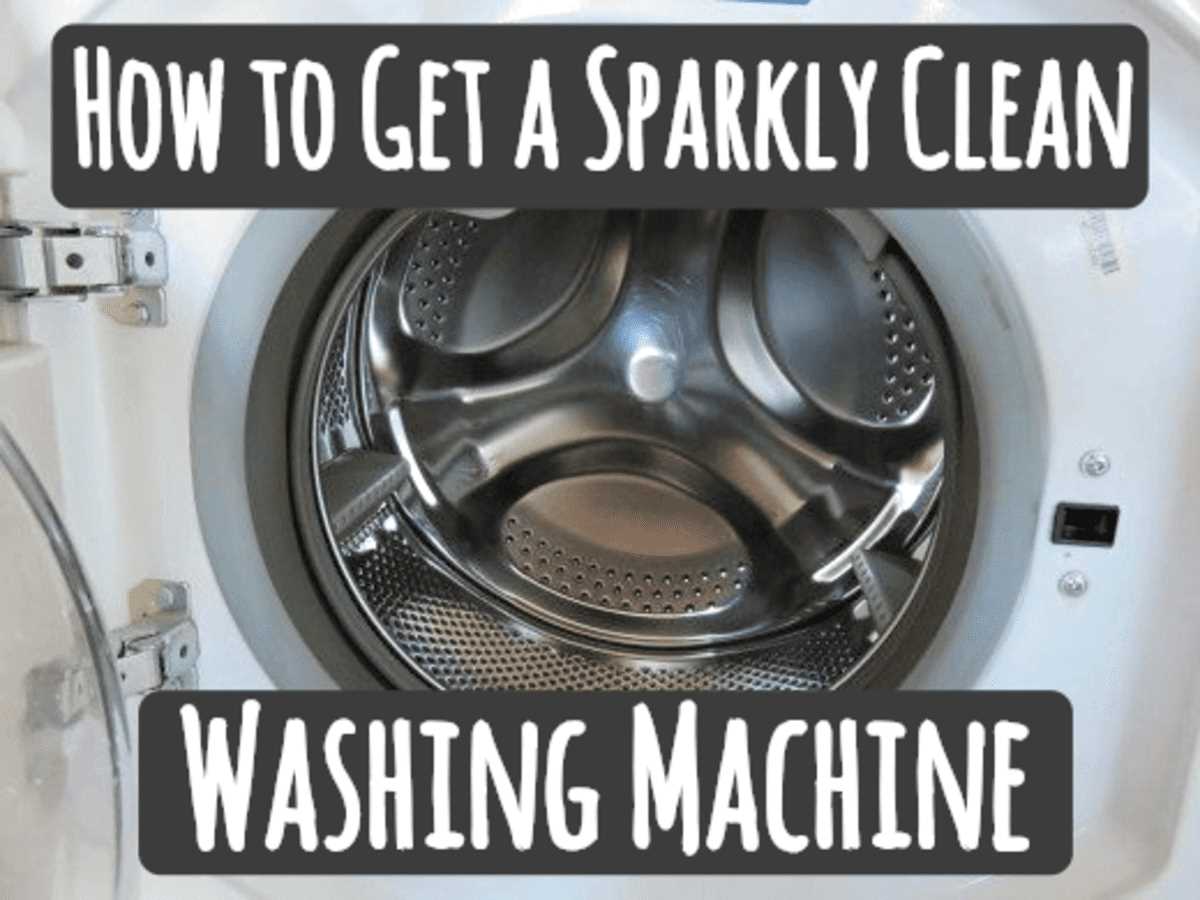
Citric acid, while a common household cleaning ingredient, can potentially cause damage to washing machines if not used properly. Here are some potential ways that citric acid can harm or cause damage to washing machines:
- Corrosion: Citric acid is an acid, and prolonged exposure to acidic substances can lead to corrosion. If citric acid comes into contact with certain metal parts of the washing machine, such as the drum or internal components, it can cause corrosion over time.
- Rubber and Plastic Degradation: Citric acid can also degrade rubber and plastic materials. If citric acid is used in high concentrations or directly applied to rubber seals or plastic parts of the washing machine, it can cause these materials to deteriorate or become brittle over time.
- Residue Buildup: Citric acid can leave behind residue when not properly rinsed off. This residue can accumulate in the washing machine’s pipes, hoses, and filters, potentially leading to clogs and reduced efficiency.
It is important to note that the extent of potential damage caused by citric acid can vary depending on factors such as concentration, exposure time, and the specific materials used in the washing machine. While citric acid can be effective for certain cleaning tasks in the washing machine, it is essential to use it responsibly and follow manufacturer guidelines to minimize the risk of damage.
If you are unsure about using citric acid in your washing machine, consult the manufacturer’s instructions or consider using alternative cleaning methods that are specifically recommended for your machine.
Safe Use of Citric Acid in Washing Machines
Introduction
Citric acid is a common and effective natural cleaner that can be used in washing machines to remove mineral deposits, limescale, and soap scum. However, it is important to use citric acid safely to avoid any potential harm or damage to the washing machine.
Why Use Citric Acid?
Citric acid is a natural product derived from citrus fruits and is considered safe for use in household cleaning. It is non-toxic, biodegradable, and environmentally friendly, making it an ideal alternative to harsh chemicals. When used correctly, citric acid can effectively clean and maintain the performance of your washing machine.
How to Use Citric Acid Safely
To safely use citric acid in your washing machine, follow these guidelines:
- Dilute the Citric Acid: Mix one cup of citric acid with one cup of water to create a solution. This will help prevent any undissolved citric acid from damaging the machine.
- Choose the Right Cycle: Select a hot water cycle with a long wash duration. The heat and extra time will enhance the cleaning power of citric acid.
- Empty the Drum: Remove any clothes or items from the washing machine before adding the citric acid solution.
- Pour the Solution: Pour the citric acid solution into the detergent dispenser or directly into the drum of the washing machine.
- Run the Cycle: Start the selected cycle and let the washing machine complete the full wash cycle.
- Optional Rinse Cycle: If desired, you can run an additional rinse cycle without any citric acid to ensure that all residue is rinsed away.
Frequency of Use
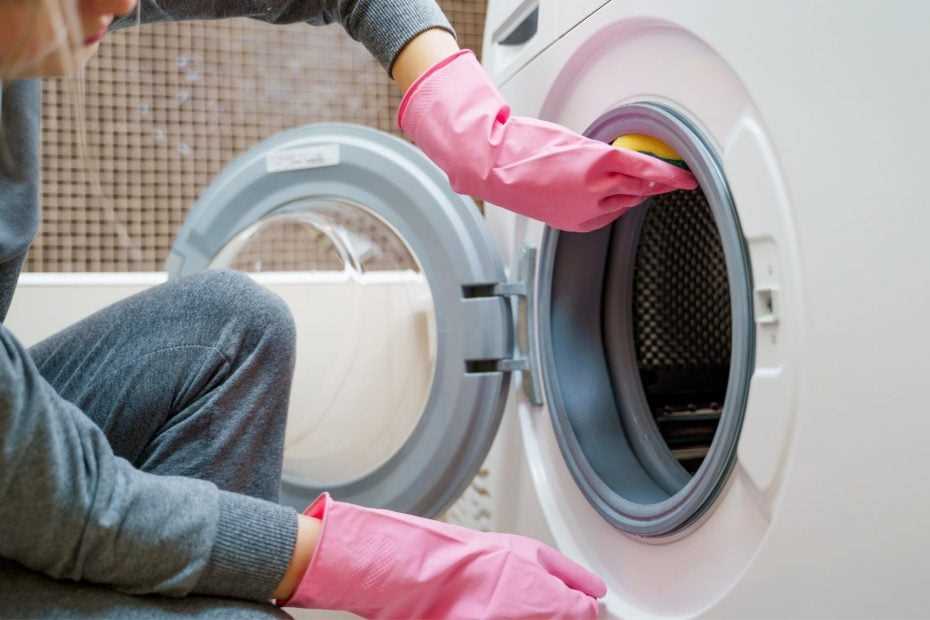
It is recommended to use citric acid in your washing machine once every few months to maintain its performance and prevent buildup. However, if you live in an area with hard water or notice signs of limescale or residue on your clothes or machine, you may need to use it more frequently.
Precautions
While citric acid is generally safe to use, it is important to take precautions to protect yourself and your washing machine:
- Read and follow the manufacturer’s instructions for your specific washing machine model.
- Avoid contact with eyes or prolonged skin exposure. If contact occurs, rinse thoroughly with water.
- Store citric acid in a cool and dry place, away from children and pets.
- Do not mix citric acid with other cleaning agents or chemicals.
- If you have any doubts or concerns, consult the manufacturer or a professional for guidance.
Conclusion
Citric acid can be safely used in washing machines to effectively clean and maintain their performance. By following the guidelines and precautions mentioned above, you can enjoy the benefits of citric acid as a natural and eco-friendly cleaning solution for your washing machine.
How to Effectively Clean Your Washing Machine
Cleaning your washing machine regularly is essential to maintain its performance and prevent any damage. Here are some steps you can follow to effectively clean your washing machine:
- Empty and remove any clothes: Before starting the cleaning process, make sure your washing machine is empty and remove any clothes or laundry items.
- Prepare a cleaning solution: Mix equal parts of water and distilled white vinegar in a bowl. For a more thorough cleaning, you can also add a few drops of dish soap or lemon juice.
- Wipe down the exterior: Use a damp cloth and the cleaning solution to wipe down the exterior of the washing machine, including the control panel, knobs, and door. Pay special attention to any areas that are prone to dirt or grime buildup.
- Clean the drum: Add the remaining cleaning solution to the detergent dispenser or directly into the drum. Run a hot water cycle with the machine empty. This will help remove any built-up detergent residue or bacteria. If your machine has a cleaning or maintenance cycle, use that instead.
- Clean the detergent dispenser: Remove the detergent dispenser and soak it in warm soapy water. Scrub it gently with a brush to remove any residue or clogged areas. Rinse it thoroughly before placing it back in the washing machine.
- Clean the rubber seal: The rubber seal around the door is prone to mold or mildew growth. Use a damp cloth and the cleaning solution to wipe down the rubber seal, removing any dirt or buildup. Pay attention to the inside of the seal as well.
- Run a rinse cycle: After cleaning the drum and other components, run a rinse cycle with clean water to flush out any remaining cleaning solution or residue.
- Keep it clean: To prevent future buildup, make sure to leave the washing machine door open after each use to allow it to dry. Additionally, regularly clean the detergent dispenser and rubber seal to prevent any mold or mildew growth.
By following these steps, you can effectively clean your washing machine and ensure its longevity and performance.
FAQ
Is it safe to use citric acid in a washing machine?
Yes, it is generally safe to use citric acid in a washing machine. Citric acid can help remove mineral deposits and build-up from the machine, improving its performance. However, it is important to use citric acid properly and follow the manufacturer’s instructions to avoid any potential damage.
How does citric acid affect the washing machine?
Citric acid is a mild acid that can help break down and remove mineral deposits and build-up in a washing machine. It can improve the machine’s performance and efficiency. However, using too much citric acid or leaving it on the machine for too long can cause damage, as it is still an acid.
What precautions should I take when using citric acid in a washing machine?
When using citric acid in a washing machine, it is important to follow the manufacturer’s instructions and guidelines. Use the recommended amount of citric acid and avoid leaving it on the machine for an extended period. Rinse the machine thoroughly after using citric acid to remove any residue. If you have any concerns or doubts, it is best to consult the manufacturer or a professional.
Can using citric acid in a washing machine cause any damage?
Using citric acid in a washing machine can potentially cause damage if not used properly. It is important to follow the manufacturer’s instructions, use the recommended amount, and avoid prolonged exposure to citric acid. If used excessively or without following guidelines, citric acid can potentially corrode or damage certain materials in the washing machine.











